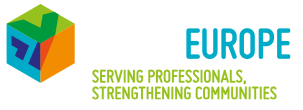The Jewish year is drawing to a close again and with Rosh Chodesh we enter the month of Elul, the month of preparation for the holiday period of the High Holy days and Sukkot. Elul is traditionally considered the month of “teshuva”, which in English we often translate as “repentance”. The concept of “teshuva” reflects the idea that people can change. Jewish tradition offers us the opportunity to reflect on our lives and not be limited by our current situation. On the contrary, we have the option to look at ourselves in the mirror and make change. How does this process happen?
Probably the most famous Jewish writings on this topic are the “Laws of Teshuva” written by the 11th century philosopher, Moses Maimonides (also known as the “Rambam”), in which he writes about the stages of teshuva, and offers a system for changing habits and returning to a better way. The Rambam describes the process as follows:
- First a person has to stop doing the actions that are problematic;
- Then he or she feels bad for having done them;
- Next it is important to verbally admit that there was something wrong; and
- Lastly a person makes a commitment to act differently next time.

Professional Reflection
For Jewish community professionals and educators Elul is a really great opportunity for professional reflection. This period of the year allows us to recognize the inevitable mistakes and failures of the past year, learn from them, and return (through teshuva) to being our best selves, ready to start the year with optimism and energy.
We recommend taking some time in the coming weeks for reflection and discussion with colleagues and friends. You can do this at a staff meeting, in a conversation over coffee or at a Shabbat table. Use the questions below and start the New Year off in the best possible way.
Good Luck and Chodesh Tov!
Resources
Teshuva
- Hillel International and the Jewish Sensibilities Project have developed fantastic resources on the topic of teshuva, with lots of activities on related topics for use with students, friends and colleagues.
- Listen to the Pardes podcast Shabbat Shuva: On Repentance and Returning and read Elul: A Time for Reflection and Renewal, both by Rabbi Meir Schweiger.
- More on the concept and practice of teshuva.
- Activities for children about teshuva.
Learning from Failure
- Failure doesn’t have to be bad. These resources will help you think about how to extract the benefits from failure and learn for the future.
- TED videos about learning from failure.
- Strategies to think about and learn from failure.
Questions for Discussion with Colleagues and Friends
Based on the Hillel curriculum linked above, use these questions to reflect.
Jewish community professionals work hard all year, to plan and implement programs, build community institutions and contribute to Jewish life in our cities. Inevitably, some of these activities, programs or initiatives will not go as well as we had hoped.
Use these questions to reflect on how you can incorporate some of the lessons of teshuva to make things right and move forward.
- Have there been any recent interactions with colleagues, students or community members that you have regretted? What did you do about it? If you could do it again, what would you do? What can you do about it now?
- What are some specific things you will do this year to deal with personal or professional situations that you find challenging?
- What are your strengths as a person and as a Jewish community professional?
What are some specific things you will do this year to use your strengths to greater effect in both your personal and professional lives?
Yesod Webinar – Working with Volunteers: Introduction To Best Practices,
Wednesday 13 September 2017, 10:00am CET
Yesod is hosting a two part webinar series on “Working with Volunteers: Introduction to best practices”. The webinar is for community professionals and educators interested in an introduction to the topic and learning more about working effectively with volunteers. Join the webinar on Wednesday September 13 at 10:00 Central European Time. Contact info@yesodeurope.eu for joining information.
View Resource of the Month Archive for resources posted in previous months.
